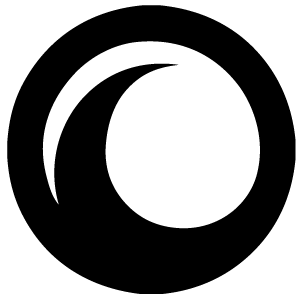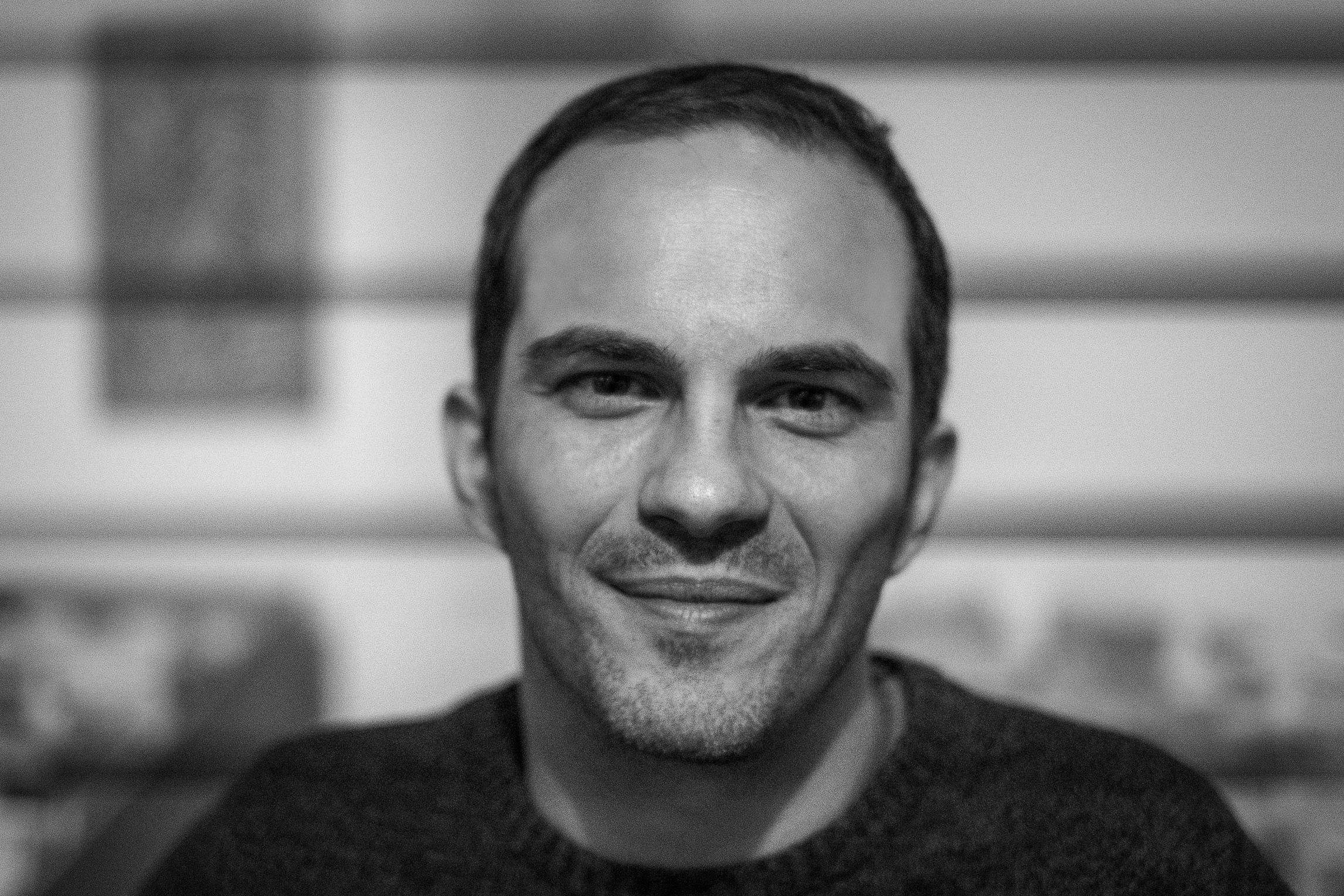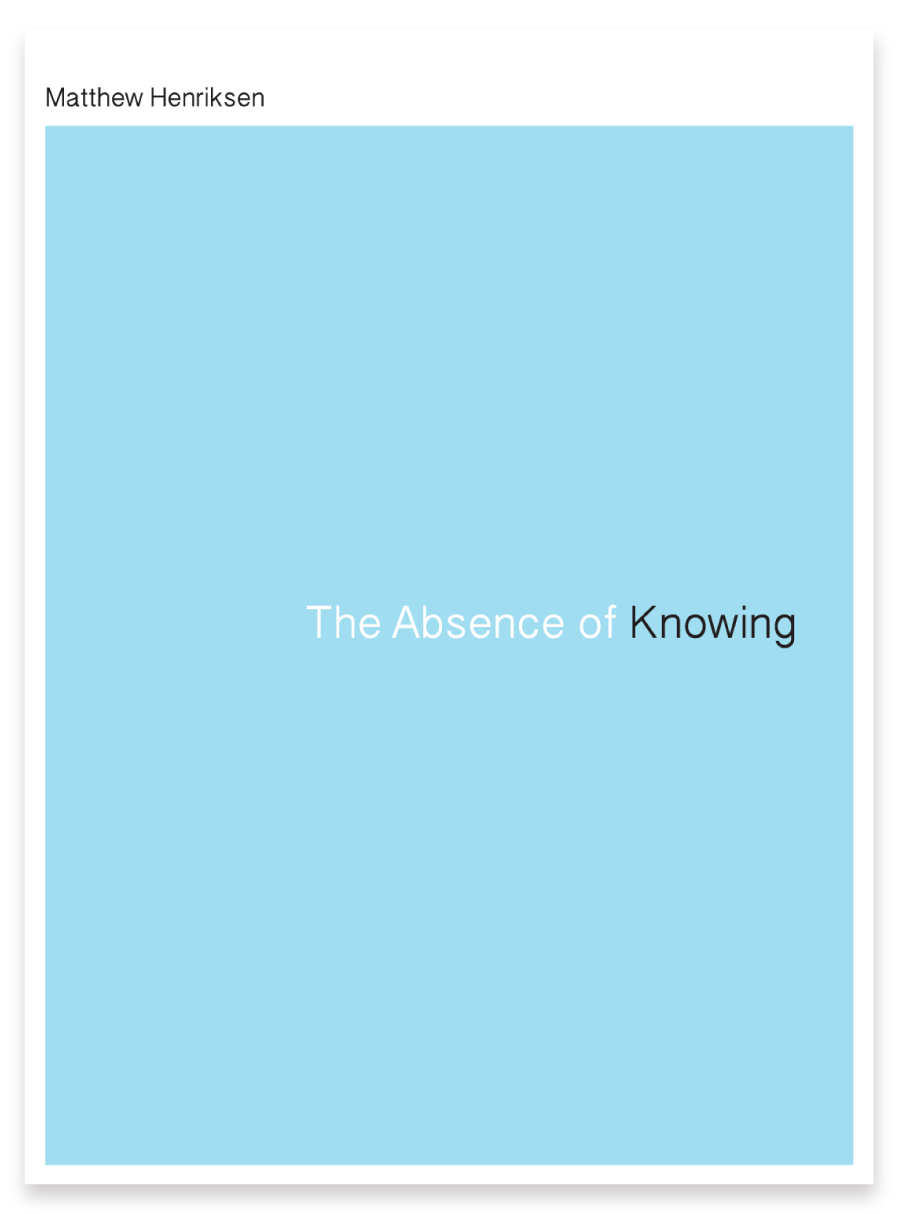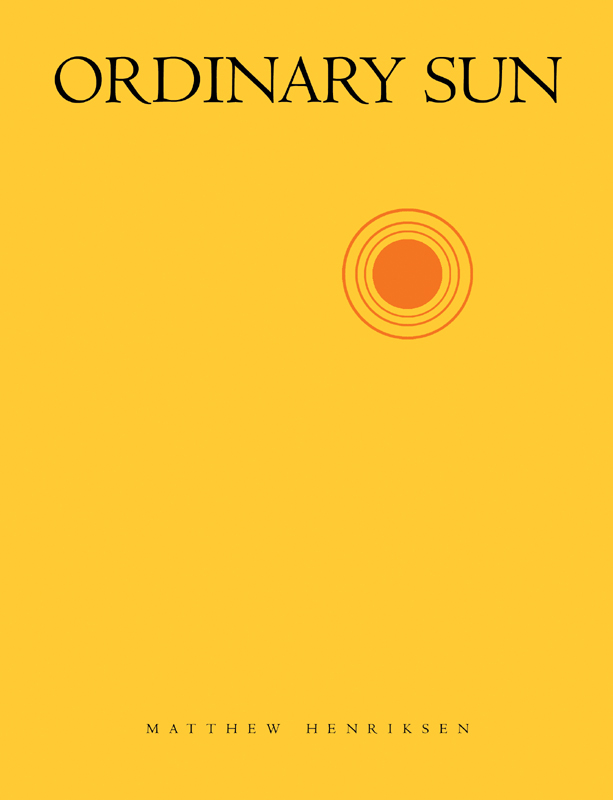by Matthew Henriksen
Softcover / 96 p. / Poetry
ISBN: 978-1-939568-13-7
by Matthew Henriksen
Softcover / 120 p. / Poetry
ISBN: 978-0-9844752-2-3
Matthew Henriksen was born in Appleton, Wisconsin in 1977. He was the author of two books of poetry from Black Ocean, The Absence of Knowing (2015) and Ordinary Sun (2011). His poems have been anthologized in Hick Poetics and The Volta Book of Poets. He also edited Another Part of the Flood: Poems, Stories, and Correspondence of Frank Stanford, which appeared in Fulcrum #7. As a coeditor behind the small press Cannibal Books, and the literary magazine Typo, he helped champion the work of many poets along the way. And, as a volunteer for the Prison Story Project, he enabled many who might have never had the chance to find their voice. He embodied what it means to be a poet engaged with the world and to look at every moment with that sensibility.
Praise
Henriksen's debut is one of the most striking collections from a small press this year... Like Frank Stanford before him, Henriksen's project is one of building a mythology around the self in which the walls that separate speaker and poet break down... Henriksen forges an individual poetics using a voice that seeks to define the world around it with highly lyrical, demanding--and rewarding--language.
—Publishers Weekly
If T.S. Eliot and Gram Parsons were both dug up and placed in the same small room with just a bottle of whiskey, Fox News and a couple of angels for company, the only contemporary poet they would bother fighting over would be Matthew Henriksen, their prodigal son. What rough age has bore us, I wonder, that we so need Matthew Henriksen's cruel kind of song? If he doesn't let up, they'll probably end up naming him the poet laureate of something and staple the names of the dead to his chest.
—Tony Tost
Could attention be a form of violence? Matt Henriksen’s speaker tests the surface of things as with a knife-blade, learning its tensile qualities, trying to do no harm. He confronts Nature’s cipher, its true face and its false face, its audible face and its ocular face, its adorned face and its blank face. This is metaphysical inquiry wherein the smallest unit opens on the largest, something on nothing, the living on the dead.
—Joyelle McSweeney



